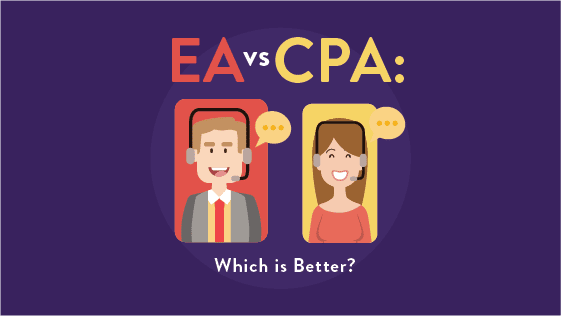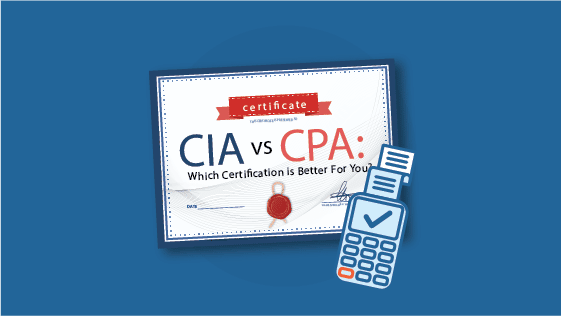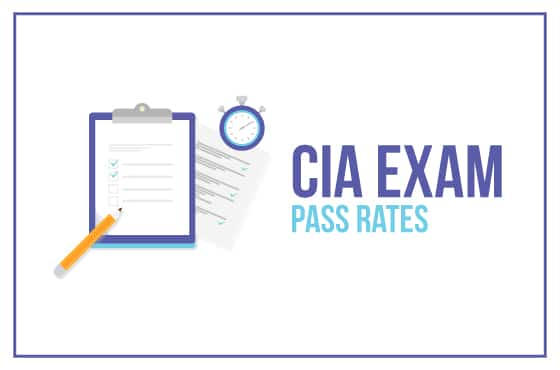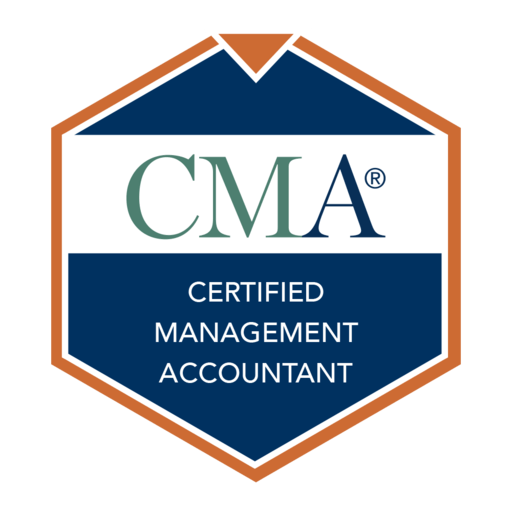
Are you aspiring to stand out in the competitive world of finance and business? The Certified Management Accountant (CMA) certification could be your key to unlocking a wealth of opportunities. Designed for ambitious accounting and finance professionals, the CMA credential is not just a testament to your expertise in financial management; it’s a gateway to becoming a strategic player in your organization’s success.
Why is CMA Certification Crucial in Today’s Business World?
In an industry where precision and strategic decision-making are paramount, CMAs bring a unique blend of financial expertise and business acumen to the table. They are the navigators in the complex world of business finance, guiding companies through financial planning, analysis, and strategic growth. With a CMA certification, you’re not just crunching numbers; you’re shaping business strategies.
Personal and Professional Advantages of Being a CMA
Becoming a CMA means more than just adding letters after your name. It’s about elevating your career to new heights. CMAs enjoy a significant edge in the job market, often landing roles in upper management and executive positions. According to the Institute of Management Accountants, CMAs can earn nearly 60% more in median salary than non-certified professionals. This certification opens doors to diverse roles, from financial analysts to CFOs, in various industries worldwide.
CMA Certification Snapshot
- What is CMA: Certified Management Accountant (CMA) is a professional certification signifying expertise in financial management and strategic business decision-making.
- Path to Certification: To become a CMA, pass the two-part CMA exam administered by the Institute of Management Accountants (IMA).
- Education Requirements: A bachelor’s degree from an accredited university or an equivalent professional certification is required.
- Professional Experience: Two years of professional experience in management accounting or financial management.
- Potential Job Roles: Financial Analyst, Management Accountant, Financial Controller, Corporate Controller, Chief Financial Officer (CFO).
- Salary Expectations: Average salaries range from over $70,000 for Accounting Managers to more than $100,000 for high-level positions like CFOs. Global mean compensation is approximately $97,000 per year.
Understanding the Landscape of Financial Certifications: CPA, CFA, MBA, and CMA
The world of accounting and finance is rich with diverse roles and specializations, each defined by unique skill sets and career paths. While the term ‘accountant’ broadly describes a professional in this field, the specifics of one’s role and expertise can vary significantly based on their certifications and educational background. Let’s explore how CFA, and CMA, CPA and MBA designations differ and where each fits in the realm of accounting-related education paths.
CPA (Certified Public Accountant)
The CPA credential is renowned for its focus on auditing, tax, financial reporting, and regulatory compliance. It’s a must-have for accountants looking to certify their expertise in public accounting and is often seen as a stepping stone for careers in audit firms or tax advisory roles.
CFA (Chartered Financial Analyst)
CFA certification is tailored for investment professionals. It delves deep into investment analysis, portfolio management, and financial modeling. CFAs typically find their niche in investment banking, portfolio management, and financial research roles.
MBA (Master of Business Administration)
An MBA, while not a certification but a degree, offers a broad understanding of business management. Covering areas like marketing, operations, and strategy, it’s ideal for those seeking leadership roles in various business sectors, not limited to finance.
CMA (Certified Management Accountant)
The CMA stands out for its blend of financial accounting and strategic leadership. Unlike the CPA, which is more compliance and reporting-focused, or the CFA, which is investment-oriented, the CMA curriculum prepares professionals for a role in financial management and business strategy. CMAs often take on roles that require both financial expertise and the ability to make strategic business decisions.
Choosing Your Path
Each of these paths – CPA, CFA, MBA, and CMA – offers unique advantages and leads to different career opportunities. For those inclined towards a role that combines financial expertise with strategic business leadership, the CMA certification is an excellent choice. It equips professionals not just with accounting skills but also with the acumen to contribute to high-level strategic decisions, making them invaluable in management roles.
Comprehensive Guide to CMA Certification
The journey to becoming a Certified Management Accountant (CMA) is both challenging and rewarding, offering a unique blend of financial expertise and strategic business acumen. Administered by the Institute of Management Accountants (IMA), the CMA certification requires candidates to pass a rigorous exam, hold a bachelor’s degree, and have two years of professional experience in management accounting or financial management. Interestingly, these academic and professional prerequisites do not need to be completed before attempting the exam, offering flexibility to candidates. (Source: Institute of Management Accountants)
The CMA Exam: Structure and Content
The CMA exam is a comprehensive assessment, conducted three times a year, designed to evaluate a candidate’s expertise in financial management and strategy. It is divided into two parts, each approximately 4 hours long.
Part 1: Financial Planning, Performance, and Analytics
This section delves into the core of financial management, covering critical areas such as planning, budgeting, and forecasting. It tests candidates on their ability to analyze financial data and use it for strategic business planning.
Part 2: Strategic Financial Management
Focusing on the application of financial principles in decision-making, this part emphasizes analysis, ethics, and risk management. It challenges candidates to apply their knowledge in real-world scenarios, ensuring they are prepared for strategic roles in their careers.
Each part of the exam comprises 100 multiple-choice questions and two essay questions, designed to test both theoretical knowledge and practical application.
The Challenge of the CMA Exam
While the CMA exam can be completed within a relatively short timeframe, it is known for its difficulty. The Institute of Management Accountants, while no longer publishing specific pass rates, has indicated that historical pass rates hovered around 40%. This statistic underscores the exam’s challenging nature and the need for thorough preparation. Candidates should be aware that the journey to becoming a CMA might require more time and resources than initially anticipated, especially if re-taking parts of the exam is necessary.
Why Pursue CMA Certification?
Despite its challenges, the CMA certification is highly sought-after due to its focus on the critical intersection of accounting and strategic business management. CMAs are equipped with technical accounting skills and the strategic thinking necessary to drive business decisions. This dual expertise makes them valuable assets in various roles across industries, from financial analysts to chief financial officers.
In order to become a CMA, an individual needs to pass the CMA Exam. This exam was created by the Institute of Management Accountants, the same organization that offers certification. A bachelor’s degree and two years of professional experience in management accounting are also required to receive CMA certification, although these requirements do not need to be fulfilled before sitting for the exam. (Source: Institute of Management Accountants)
Exploring Career Opportunities with CMA Certification
The Certified Management Accountant (CMA) certification opens a unique and specialized pathway in the world of finance and accounting. Unlike other financial certifications like the CFA, which offers a broad spectrum of knowledge applicable to various roles in finance, the CMA is more focused, catering specifically to those who aim to excel in financial management and strategic business roles.
CMA certification is an excellent alternative for those who may not pursue a CPA. It’s ideal for professionals aiming to focus on management accounting and strategic financial roles, rather than traditional public accounting. The CMA offers a unique blend of skills highly valued in corporate finance, opening doors to diverse and strategic career paths.
– CPA Expert Bryce Welker
Specialization in Finance and Accounting
CMAs are known for their specialized skill set, which is primarily centered around finance and accounting. This specialization, however, does not limit their career opportunities. Instead, it positions them for roles that require a deep understanding of financial management within a business context. Here are some potential fields and career options for CMAs:
- Corporate Finance: Involving roles like Financial Analyst, Finance Manager, and Chief Financial Officer (CFO), where CMAs contribute to financial strategy and decision-making.
- Management Accounting: Positions such as Management Accountant or Cost Accountant, focusing on budgeting, performance analysis, and cost management.
- Risk Management and Internal Control: Roles like Risk Manager or Internal Auditor, where CMAs assess financial risks and implement control measures.
- Strategic Planning: Involving strategic roles such as Business Analyst or Strategic Planner, where CMAs use their financial expertise to guide long-term business planning.
- Consulting and Advisory Services: CMAs can work as Financial Consultants or Advisors, providing expert advice on financial management and business strategies.
- Education and Training: With their expertise, CMAs can also pursue careers in academia, teaching finance and management accounting, or in corporate training roles.
The Advantage of Specialization
While the CMA certification may seem narrowly focused compared to broader certifications like the CPA or CFA, this is actually a significant advantage. The in-depth knowledge and skills CMAs possess in financial management and strategic planning make them highly desirable for high-level positions within organizations. This specialization leads to:
- High Demand in the Job Market: CMAs are sought after for their unique skill set, especially in roles that require both financial expertise and strategic business acumen.
- Excellent Upward Mobility: The specialized knowledge of CMAs often leads to rapid career advancement, with opportunities to move into senior management and executive positions.
- Competitive Salaries: Due to their specialized skills and the critical roles they play in organizations, CMAs often command higher salaries compared to professionals with more general financial certifications.
CMA Salaries
The Certified Management Accountant (CMA) certification not only opens doors to specialized career paths but also leads to potentially higher earnings compared to other financial certifications. The focused nature of CMA roles often translates into more competitive salaries, especially in higher-level positions.
Salary Ranges Across Different Roles and Regions
- Accounting Manager: Typically, an Accounting Manager with a CMA certification can expect an average annual salary of over $70,000. However, this figure can vary based on the state and the size of the company. In states with a higher cost of living, such as New York or California, salaries can be significantly higher.
- Senior Financial Analyst and Financial Controller: These roles often see average salaries around $80,000, with potential increases based on experience, location, and the specific industry sector.
- Corporate Controllers and CFOs: For CMAs reaching these upper echelons of finance, annual salaries often exceed $100,000. In major financial centers or large corporations, CFOs can command salaries well above this average, reflecting the high level of responsibility and expertise required.
Global Compensation Trends
According to a survey by the Institute of Management Accountants (IMA), the global mean total compensation for CMAs stands at approximately $97,000 per year. This figure underscores the lucrative nature of the CMA certification on a global scale. (Source: Wiley)
Comparing CMA vs CPA vs CFA
While entry-level positions for CMAs, CPAs, and CFAs may offer similar compensation, the specialized nature of CMA roles often leads to higher salaries as one progresses in their career. The strategic and managerial focus of the CMA certification is particularly valued in roles that directly influence company finances and decision-making.
Interested in embarking on your CMA journey? Begin by exploring the our picks of the best CMA prep courses.
CMA Exam Prep Course Discounts & Promo Codes
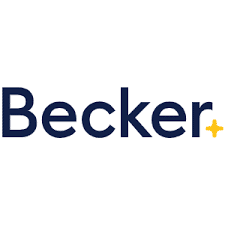
Take $990 Off Becker CMA Pro

Get $650 Off Gleim CMA Premium Course

Take $600 Off Surgent CMA Ultimate Pass

Save 20% on CMA Exam Academy Review Course

Becker CMA Advantage on Sale at $1,599

Try Becker CMA Free Demo

No Interest Payment Plans on Becker CMA – Deal

Sale – Becker CMA Exam Part 1 Now $899

Deal – Becker CMA Exam Part 2 Now $899
Case Study: A Reddit User’s Journey to CMA Certification
Background: A Reddit user, aspiring to become a Certified Management Accountant (CMA), embarked on the journey of preparing for the CMA exam. This case study explores their approach to studying, the resources they used, and the discipline they maintained throughout their preparation.
Challenge: The CMA exam is known for its rigorous nature, covering extensive topics in financial management and strategic business analysis. The challenge for any candidate is to find effective study materials and create a consistent study routine that fits into their daily life.
Approach: The Reddit user chose to utilize affordable and accessible study resources. A key aspect of their approach was the commitment to consistent study. They dedicated 1-3 hours each day for a month to prepare for the exam. This disciplined approach ensured that they regularly engaged with the material, reinforcing their understanding and retention of key concepts.
Outcome: The user’s commitment to consistent daily study and the use of targeted, effective study materials were crucial in their preparation for the CMA exam. While the case study does not detail the exam outcome, the approach highlights important strategies for success in CMA exam preparation:
- Choosing the Right Study Materials: Selecting resources that comprehensively cover the exam content and offer practice opportunities is vital.
- Consistent Study Routine: Regular, dedicated study sessions help in better absorption and understanding of the complex topics covered in the CMA exam.
- Balancing Time and Effort: Allocating a manageable amount of time each day allows for sustained effort without burnout.
Conclusion: This case study illustrates that with the right resources and a disciplined approach to study, preparing for the CMA exam can be effectively managed. It underscores the importance of consistency and the careful selection of study aids in the journey towards achieving CMA certification.
Read the original discussion on Reddit.
Case Study: Career Advancement Post-CMA Certification – From Deloitte to Nike
Background: This case study focuses on an individual who achieved the Certified Management Accountant (CMA) certification and subsequently experienced significant career advancement. Their journey from working at Deloitte, one of the Big Four accounting firms, to a pivotal role at Nike, a global leader in sportswear, offers insights into the impact of the CMA certification on career trajectories.
The Professional Shift: The individual, a seasoned professional at Deloitte, decided to pursue the CMA certification to enhance their financial expertise and strategic management skills. Upon achieving the certification, they sought new opportunities that would leverage their enhanced skill set.
Role of CMA in the Transition: The CMA certification played a crucial role in this transition. It not only validated their expertise in financial management and strategy but also positioned them as a candidate with a unique blend of accounting skills and strategic business acumen. This combination was particularly appealing to Nike, which operates in a dynamic and competitive industry where strategic financial management is key.
Career at Nike: At Nike, the individual was able to apply the advanced knowledge and skills gained through the CMA certification. Their role involved strategic planning, financial analysis, and contributing to key business decisions, areas where their CMA expertise was directly applicable.
Value of CMA in Learning Job-Relevant Materials: The individual highlighted that the CMA certification was instrumental in learning materials and concepts that were directly relevant to their job. Unlike other certifications that might offer broader but less applicable knowledge, the CMA’s focus on management accounting and strategic financial decision-making provided practical and applicable insights.
Conclusion: This case study demonstrates the tangible benefits of the CMA certification in career advancement. The individual’s move from Deloitte to Nike underscores how the CMA can open doors to new opportunities in diverse industries and facilitate roles that require a higher level of strategic involvement. It illustrates that for professionals looking to enhance their role in financial decision-making and strategic business management, the CMA certification can be a powerful catalyst for career growth.
Learn more about their journey on Reddit.
FAQs
The CMA and the CPA are both challenging tests that focus on separate skills. However, the CPA exam consists of 4 tests in total— and if you fail one, you must start over. Because of this, the CPA exam is much harder to pass than the CMA exam regardless of their respective content and pass rates, which is why we suggest CPA prep courses to help you pass.
Both of these certifications cover common ground; the important difference is what you intend to specialize in. For example, the CMA exam helps you develop financial and management accounting, while the CFA focuses on investment management skills. In the long run, CFA certification can lead to careers with higher salaries, but CMA certification is better if you want a high-paying accountant position.
Yes, CMA is a globally recognized certification. It is valued by employers worldwide and is considered a standard of excellence in management accounting.
CMAs are required to complete 30 hours of continuing professional education (CPE) annually, including two hours in ethics, and pay an annual IMA membership fee to maintain their certification.
The time to complete CMA certification varies. The exam itself can be completed within a year, but including the required two years of professional experience, the entire process can take around three years.
Yes, an MBA complements CMA certification well. While an MBA provides a broad understanding of business management, CMA offers specialized knowledge in financial management and strategy, making the combination of these two qualifications highly valuable.
CMAs often pursue careers in corporate finance, management accounting, risk management, and strategic planning. Common roles include Financial Analyst, Financial Controller, Corporate Controller, and Chief Financial Officer (CFO).
Bryce Welker is a regular contributor to Forbes, Inc.com, YEC and Business Insider. After graduating from San Diego State University he went on to earn his Certified Public Accountant license and created CrushTheCPAexam.com to share his knowledge and experience to help other accountants become CPAs too. Bryce was named one of Accounting Today’s “Accountants To Watch” among other accolades. As Seen On Forbes


